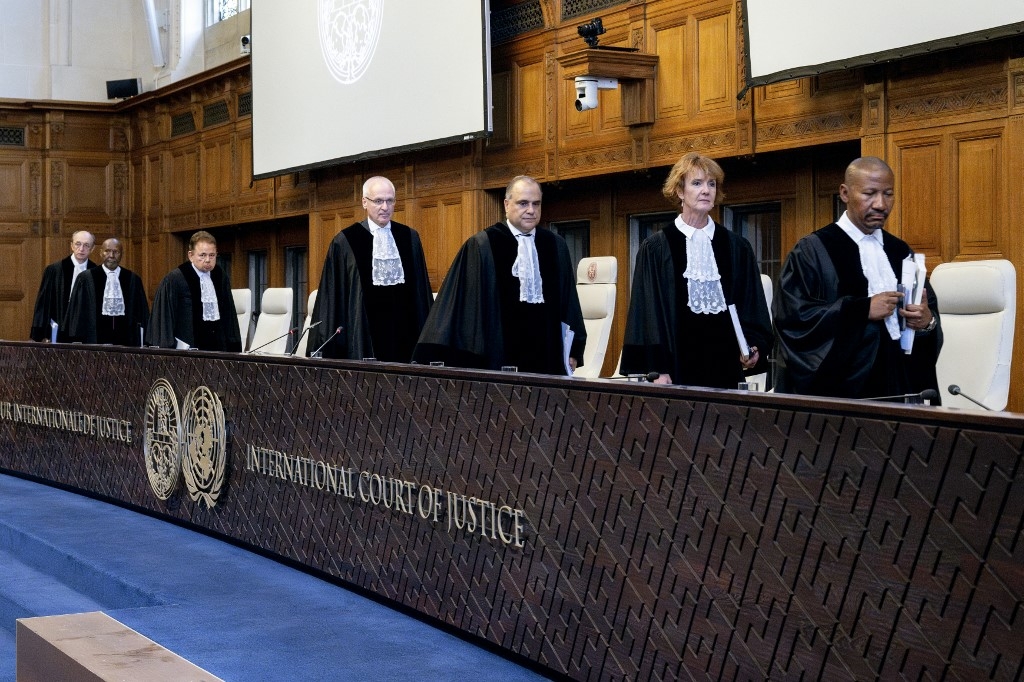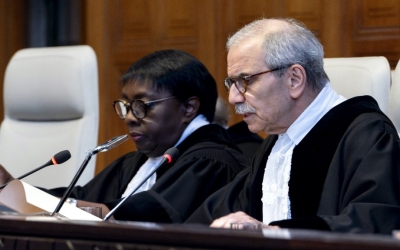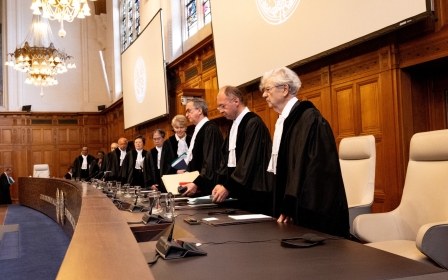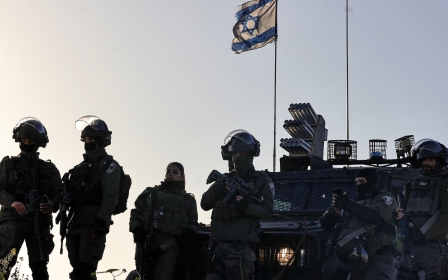Turkey joins genocide case against Israel at the ICJ after months-long delay

Turkey officially submitted its intervention in favour of Palestine on Wednesday at the International Court of Justice (ICJ) in a case pursued by South Africa accusing Israel of genocide in Gaza.
Even though Ankara officially announced in May that it would join the case, the legal complexities of the application and possible future ramifications put Turkey in months-long deliberations before submitting its intervention.
"Emboldened by the impunity it has received for its crimes, Israel is killing more and more innocent Palestinians every day," Turkish Foreign Minister Hakan Fidan posted on X.
"The international community must do its part to stop the genocide and put the necessary pressure on Israel and its supporters. Türkiye will make every effort on this path."
Turkish diplomatic sources said Turkey's declaration of intervention at the ICJ is based on Article 63 of the court's statute, which allows any state to intervene once another is believed to violate the 1948 UN Convention on Genocide.
New MEE newsletter: Jerusalem Dispatch
Sign up to get the latest insights and analysis on Israel-Palestine, alongside Turkey Unpacked and other MEE newsletters
“As a signatory of the 1948 Genocide Convention, Turkey is bound by international law to prevent and punish acts of genocide,” one of the sources said.
“Turkey's intervention underscores its commitment to these obligations and sets a precedent for other nations to address serious humanitarian crises similarly.”
Nicaragua, Colombia, Libya, Mexico, Palestine and Spain have all previously submitted interventions in the case. However, Turkish officials claim Ankara’s application is the most comprehensive and well-founded to this date.
One distinctive feature of the Turkish application is its alignment with the ICJ’s recent advisory on the legal consequences of Israel's policies and practices in the occupied West Bank, East Jerusalem and Gaza Strip, which Turkey believes strengthens its legal arguments.
Since May, Turkish officials have encouraged many other states in the region to join the case, but surprised some with the length of time it took to do so itself.
Sources familiar with the issue told Middle East Eye earlier this year that this was the first time Ankara has ever had to make such an application, and it needed a detailed counsel to bring it forward.
The internal deliberations included possible future issues, such as Armenia filing a genocide case against Turkey over the mass killing of Armenians in 1915, long before the foundation of the modern republic.
Turkey's main opposition, the Republican People’s Party (CHP), warned the government over such possibilities in May.
Other CHP officials believe Article 63 could give the same judicial powers to other states, which may sue Turkey on similar charges.
Soon after Ankara declared its intention to intervene, Erdogan Toprak, a CHP member of parliament from Istanbul, said Jewish communities in the West could cooperate with the Greek and Armenian diaspora to file genocide cases against Turkey at the ICJ.
The Hague-based court is yet to make a decision on the intervention applications by other states. The Turkish diplomats believe the overall conclusion of the judicial proceedings will take four to five years.
The court has set 28 October as the deadline for South Africa to submit its written arguments and 28 July 2025 for Israel to do the same.
“This intervention not only addresses the immediate crisis in Gaza but also strengthens the global legal framework for handling similar situations in the future,” a Turkish diplomatic source said.
Middle East Eye delivers independent and unrivalled coverage and analysis of the Middle East, North Africa and beyond. To learn more about republishing this content and the associated fees, please fill out this form. More about MEE can be found here.





